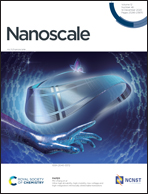Fibroblast activation protein-α-adaptive micelles deliver anti-cancer drugs and reprogram stroma fibrosis†
Abstract
Cancer-associated fibroblasts (CAFs) are the majority cell population of tumor stroma, and they not only play important roles in tumor growth and metastasis, but they also form a protective physical barrier for cancer cells. Herein, we designed a fibroblast activation protein-α (FAP-α)-adaptive polymeric micelle based on hyaluronic acid and curcumin conjugates. The polymeric micelle is composed of a CD44-targeting shell and a FAP-α-cleavable polyethylene glycol (PEG) coating. When FAP-α is encountered on the surface of CAFs in the tumor microenvironment, the PEG layer is released, hyaluronic acid is recovered on the surface of nanoparticles, and the nanoparticles effectively inhibit the growth of tumor cells and CAFs through CD44-mediated endocytosis. The FAP-α-adaptive polymeric micelle exhibited potent anti-cancer efficacy by enhancing CAF apoptosis and reducing collagen in tumor tissues. Collectively, FAP-α-adaptive nanoparticles may be a promising method for antitumor anticancer treatments via reprogramming of stroma fibrosis.



 Please wait while we load your content...
Please wait while we load your content...